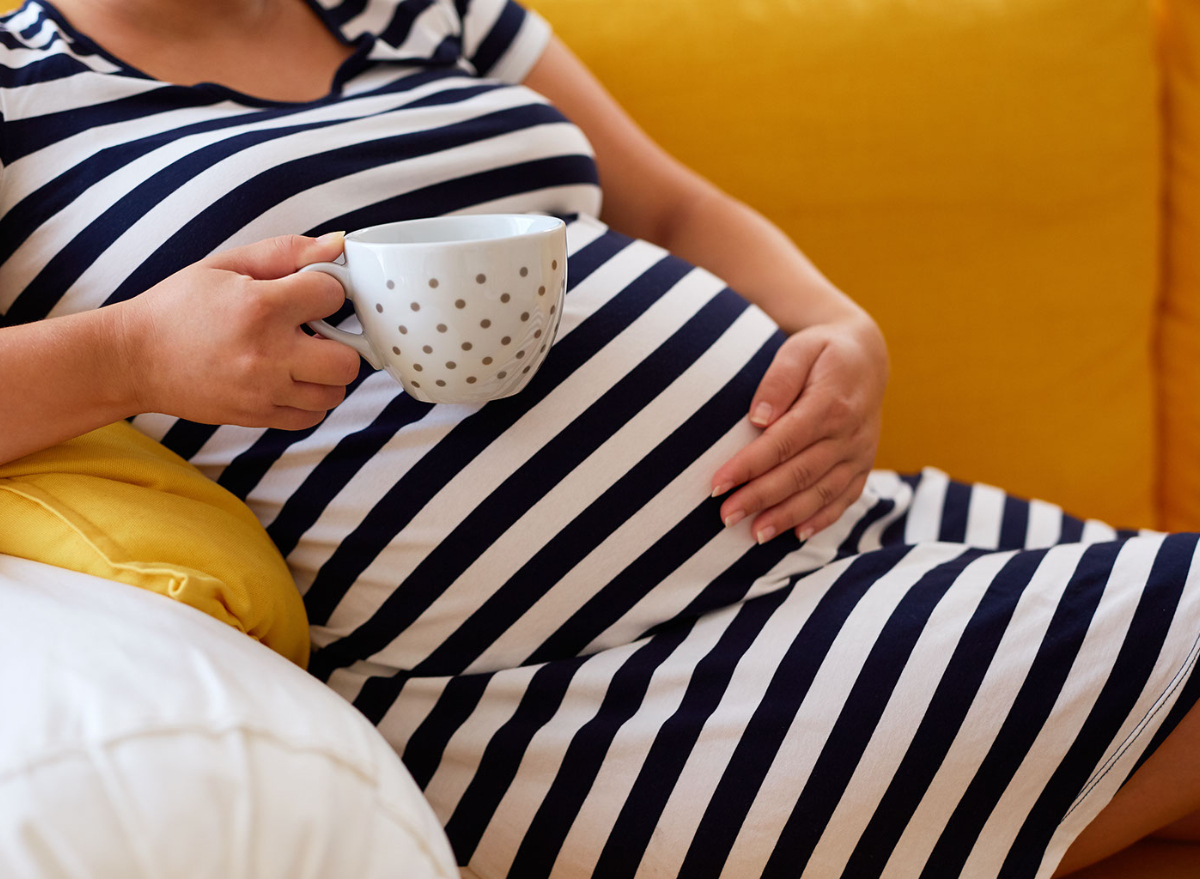Ugly Side Effects of Drinking Coffee, According to Science

Coffee is not only one of the most popular beverages on the planet, its stimulant compound caffeine is arguably the most studied psychoactive substance.
Caffeine's effects on the body have been the focus of thousands of scientific studies and the bulk of recent research suggests that reasonable consumption is relatively harmless and may even do your body good. A recent meta-analysis of 40 studies involving over 3.85 million people published in 2019 in the European Journal of Epidemiology, for example, found an association between drinking two to four cups of coffee daily (considered moderate consumption) and reduced rates of all-cause and cause-specific death when compared to no daily coffee drinking.
A large body of research has linked moderate daily coffee consumption with reduced risk of type 2 diabetes, certain cancers, heart disease, depression, gallstones, Parkinson's disease, and possibly even late-life dementia. Plus, caffeine boosts alertness, focus, and even athletic performance. Moderate consumption is generally defined as 3 to 5 eight-ounce cups a day or an average of 400 milligrams of caffeine, according to the Dietary Guidelines for Americans. A review of 112 meta-analyses of observational studies published in the Annual Review of Nutrition concluded that "coffee can be part of a healthful diet."
So what's not to love about coffee? The answer seems to be very little for most people. But some human beings are more sensitive to the caffeine in coffee than others and consuming coffee can result in serious negative side effects worth keeping in mind. Here are some of the ugly side effects of drinking coffee on a regular basis that you should be aware of, and for even more helpful drinking tips, be sure to check out our list of 108 Most Popular Sodas Ranked by How Toxic They Are.
Poor sleep and its detrimental effects.

The reason your 3 o'clock coffee break perks you up enough to get you through the rest of the workday has everything to do with brain chemistry. Caffeine, the stimulant compound that provides that jolt of alertness, does its work by temporarily blocking receptors in your brain from sensing a chemical called adenosine, a central nervous system depressant. Adenosine levels rise in your brain the longer you are awake, suppressing alertness and ultimately promoting sleep. But caffeine keeps that from happening, which is why you may have trouble falling asleep if you drink it late in the day.
Caffeine's half-life is about 5 hours, according to the American Academy of Sleep Medicine, meaning if you had a cup of coffee containing 100 milligrams of caffeine, there will still be 50 milligrams in your body five hours later. Drinking coffee within six hours of going to bed reduced sleep time by a full hour, according to a study in the Journal of Clinical Sleep Medicine.
That's why most sleep doctors recommend not drinking caffeine after noon. The remaining caffeine in your bloodstream can decrease the amount of slow-wave and REM sleep you get, stages that are critically important for physical recuperation and memory consolidation. And it's well documented that poor quality sleep and inadequate length of sleep are associated with weight gain, higher rates of obesity, type 2 diabetes, and heart disease.
Is caffeine really that bad for you? Here are the Side Effects of Drinking Caffeine, According to Science.
Panic attack.

People who suffer from anxiety and panic disorders may want to avoid drinking caffeinated coffee unless they have built a tolerance for it, studies suggest. One such case-controlled experiment in Depression & Anxiety found that 48% of patients with a panic disorder diagnosis experienced a panic attack if they consumed 400 to 480 milligrams of caffeine.
Get even more healthy tips straight to your inbox by signing up for our newsletter!
Jitters, higher blood pressure, and increased heart rate.

The research is not definitive on coffee's effect on blood pressure. Some studies suggest it has no effect or may even lower blood pressure by relaxing blood vessels and improving blood flow, while other studies show that too much caffeine can trigger anxiety, high blood pressure, and increased heart rate in some people. Many of you have probably experienced the "caffeine jitters" after having a few large coffees on an empty stomach.
"Whereas low-dose caffeine effects are wakefulness, a little bit of arousal, and slight euphoria, high-dose effects are anxiety, irritation, and general mental discomfort—a completely different kettle of fish," Bertil B. Fredholm, emeritus professor of pharmacology at Karolinska Institute in Sweden told Chemical & Engineering News.
Heart attack & stroke.

Because coffee drinking elevates blood pressure and homocysteine, an amino acid associated with arterial damage, there may be an increased risk of heart attack and stroke particularly in people who don't drink coffee regularly, according to Harvard Health Letter.
But most studies, the newsletter notes, link moderate consumption of coffee to a decrease in risk. However, the European Journal of Preventive Cardiology was the first to link the type of brewing method to heart attacks and longevity.
"Unfiltered coffee contains substances which increase blood cholesterol," says study author Dag Thelle, a senior professor at the University of Gothenburg, Sweden, in a statement from the European Society of Cardiology. "Using a filter removes these and makes heart attacks and premature death less likely."
Oily substances called diterpenes are mostly present in coffee brewed in a French press, and in Turkish coffee, and other boiled coffees that aren't filtered. Studies show that paper or cotton-nylon filters are most effective at trapping cholesterol-raising ingredients.
Pregnancy problems.

Consuming a lot of caffeine daily has been shown to be associated with slow fetal growth, a decrease in birth weight, and an increased risk of miscarriage.
"Caffeine can cross the placenta and affect your baby's heart rate," says Jennifer Ashton, MD, Chief Medical Correspondent for ABC News and author of Eat This, Not That! When You're Expecting. Small amounts of coffee have been shown to be safe; the American College of Obstetricians and Gynecologists recommends that women limit caffeine to 200 milligrams per day—which is around two 8 oz. cups of coffee.
However, new research published this March in JAMA Open Network suggests that even lower amounts of daily caffeine during pregnancy may impact fetal growth. The research that came out of the National Institutes of Health's Eunice Kennedy Shriver National Institute of Child Health and Human Development looked at the association between self-reported caffeine consumption, as well as blood concentrations, and body measurements of newborns. The study found that women who said they consumed the caffeine equivalent of about a half cup of coffee a day had infants that were smaller and lighter in weight than babies born to women who drank no caffeine.
The answer is it's up to you. Overall, the wealth of research on caffeine's health effects suggests that drinking coffee is fine for most people and may even be health-promoting. However, under certain circumstances, it may be in your best interest to limit the amount you consume. If thinking about your coffee habits gives you the jitters, try This One Trick That Will Help You Cut Down on Caffeine For Good.








